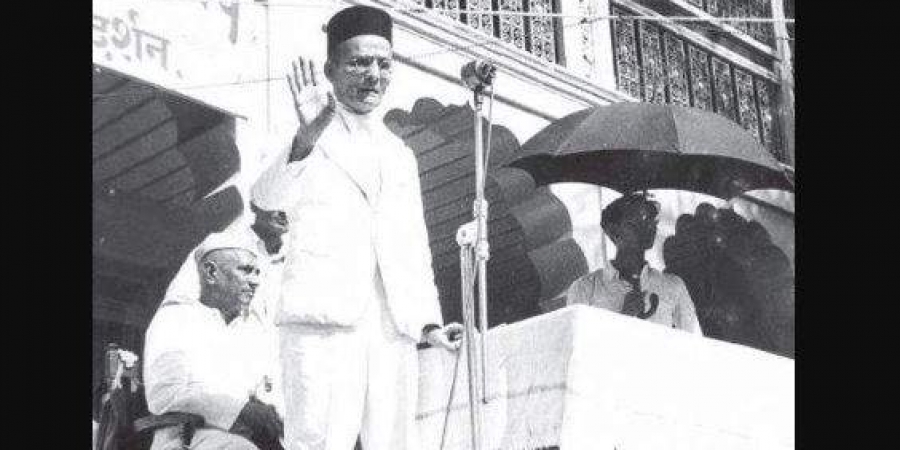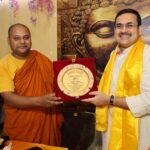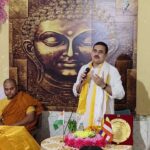Taking a step towards being ourselves
- By : Anirban Ganguly
- Category : Articles

Union Home Minister Amit Shah echoes our nationalist thinkers and educators in the past.
The discussion on history writing in India is again under focus after Union Home Minister Amit Shah spoke of it while inaugurating a national conference on Skandagupta at the Banaras Hindu University on October 17. The debate on writing of Indian history—the history of the freedom movement—has been a continuing one, but with Shah’s insistent that the time for criticising the British and the Leftist historians had passed and that it was now necessary to pour energies into writing India’s history from the Indian point of view has again ignited the debate.
Shah echoes our nationalist thinkers and educators in the past. Most of the history of India is written and propagated by colonial administrators and writers and later, by communist historians who from the 1960s onwards had taken control of India’s social science research. The history was meant to generate disgust in young minds towards one’s traditions, culture and civilisational achievements.
If I were to use one of the descriptions of ‘Left Opinions’ by the leading British conservative philosopher Roger Scruton and use it to analyse the results and objectives of Left historiography in India, it was to generate “Guilt towards one’s country and its past—the attitude described in America as the ‘liberal cringe’: a form of embarrassment at one’s ancestors, for having believed in their own superiority and having, through that belief, made themselves superior”.
The goal of both colonial and communist historiography in India has been to generate this guilt towards one’s country, towards one’s civilisational inheritance and achievements. The former did it with the intention of denigrating and controlling the colonised units and of trying to prove that the colonised people were of lesser calibre and therefore needed to be exposed to the ‘mission civilisatrice’. The latter did it with the intention of propagating and forcing down a particular political ideology which had deconstructionism and class conflict as its core goals.
Both succeeded in striking roots in India and Left historiography especially wreaked havoc on young minds. An array of great and prolific Indian historians and their copious outputs and oeuvres were sidelined and rejected as outdated or motivated. A large number of personalities in the evolution of India—minor as well as major—who had made contributions to the country’s rise, had enriched her civilisational quest through numerous and multi-faceted contributions, had participated vigorously, resolutely and fearlessly in her freedom struggle, were marginalised and eventually buried under the heap of dialectical jargons and bogus theories. As a result, a number of revolutionary nationalists, their saga of toil and sacrifice were erased from collective memory.
VD Savarkar’s legacy, the legacies of the revolutionary nationalists, the likes of Bagha Jatin and so many others across the country suffered the same fate. They were denounced as bourgeois revolutionaries who did not wage the right kind of struggle. Those revolutionary nationalists, who turned to Marxism in later years, were spared this ignominy.
Most of our nationalist thinkers and epoch makers of the modern era, those who had either inspired or participated in our struggle for freedom, repeatedly referred to this need of writing our own history. The Dawn Society’s magazine, which was one of the leading vehicles of national education movement; Bipin Chandra Pal’s journal New India; Sister Nivedita and others did extensive write-ups on this. KM Munshi’s attempt at Bharatiya Vidya Bhavan in 1943 was the first collective effort when he mobilised 70 historians under the leadership of RC Majumdar to write the multi-volume opus, The History and Culture of the Indian People.
When he was once asked, nearing independence on what is “your message to the new India of our dreams”, philosopher Ananda Coomaraswamy replied, “be yourself”. Writing history from the Indian point of view, as Shah exhorted, is a cardinal step in being ourselves.

















